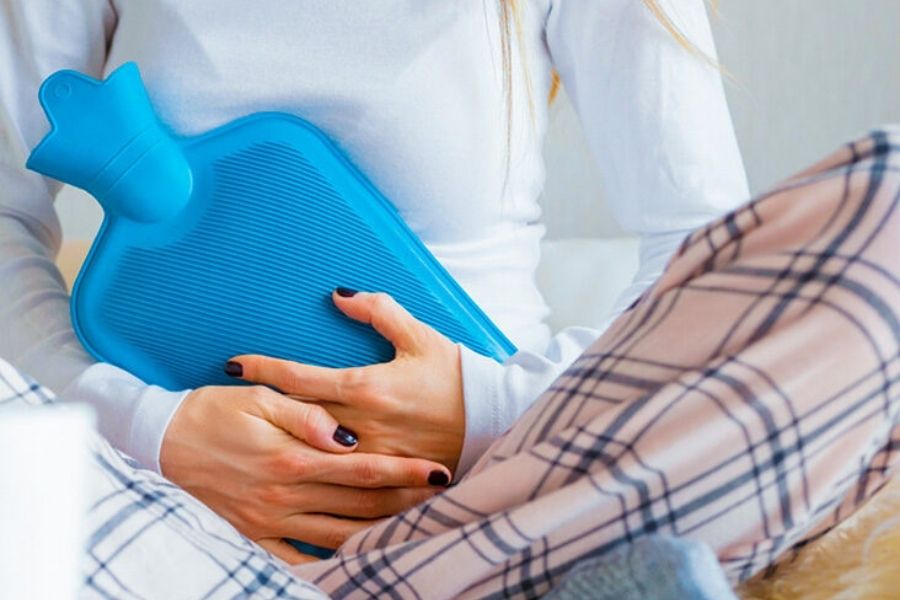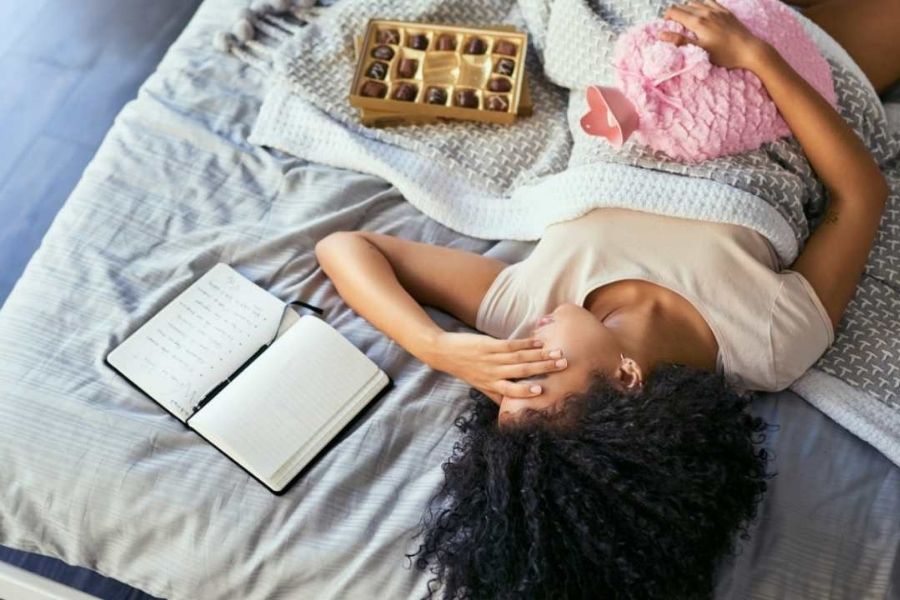Being a mother is a gift of God to women, even if it carries a lot of pain. It’s not just about the labor pain but also another kind of pain and challenges. Here we are talking about ‘Menstruation‘ and the challenges and care of menstrual pain every woman faces.
What Is Menstruation?

Menstruation is the monthly shedding of a woman’s uterus lining. The menstrual blood flows from the uterus through the cervix and out of the body through the vagina. A woman bleeds every month for 3 to 5 days and faces this painful situation. All these events occur in a cycle called ‘Menstrual Cycle,’ describing the sequence of events that occur within a woman’s body as her body prepares for the possibility of pregnancy each month.
At the age of puberty, our body undergoes lots of physical and hormonal changes. At the age of 12, a girl starts menstruating (called menarche), and a woman stops menstruating at menopause, occurring at about the age of 51. The average menstruation cycle is 28 days long, but it may vary between 21 to 35 days. Thus we can say every woman experiences menstruation 400-500 times in her life.
Challenges During Menstruation

Menstruation in our country is associated with numerous myths and restrictions, leading to a lack of awareness among adolescent girls. Unfortunately, topics like menstrual pain, menstrual cycle, menstrual hygiene, care, and nutrition are not discussed and taught in schools and colleges as a part of regular study. In many parts of our country, especially in rural areas, girls are not prepared and aware of menstruation. Hence, they face many challenges and difficulties at home, schools, and workplaces.
A woman has to face physical, psychological, and social challenges along with menstrual pain and bleeding. It includes anxiety, depression, environmental stress, and social factors, such as interaction with friends, family, and colleagues and their attitude toward menstruation.
Menstruation Signs And Symptoms

The following signs and symptoms occur in a girl/woman during her menstrual periods affecting her everyday life.
- Mood swings
- Trouble sleeping
- Cramps in the lower abdomen and back
- Tenderness in the breasts
- Bloating
- Food cravings
- Acne
Factors Affecting Menstrual Pain

Junk foods lack micronutrients such as vitamins, minerals, fibers, and amino acids. They are made tastier by adding additives like monosodium glutamate, tartrazine, etc. These foods cause various chronic diseases, including obesity and diabetes, and increases the risk of breast cancer and prostate cancer, and osteoporosis at an early age. People who eat fast food consume more fat, salts, and saturated fat.
A lot of stress can make periods heavier, show up late, or stop altogether. It ultimately disturbs the menstrual cycle and leads to menstrual problems.
Other challenges are cultural and religious beliefs followed by people regarding menstruation. These societal norms are the barriers in the path of good menstrual hygiene practices. Many women experience restrictions on cooking, work activities, bathing, worshipping, and eating certain foods. As a result, a woman feels subnormal, diseased, or traumatized.
Care For Menstrual Pain

Menstruation hygiene management is a crucial part of care during menstrual periods. Lack of knowledge about reproductive tract infections due to ignorance of personal hygiene during menstruation time leads to several health problems. So, it is clear that education on this topic plays a crucial role in women’s health.
The following points are essential in the management of personal hygiene and physical symptoms.
- Use a disposable sanitary pad or a menstrual cup to absorb or collect blood for the duration of the menstrual period. Proper disposal of used sanitary pads and cleaning of the menstrual cup is also essential.
- Usage of a heat patch on the abdomen can give some relief by relaxing the muscles of the uterus. It is a more effective way than taking over-the-counter pain killer pills.
- A massage with essential oils can help in easing period cramps.
- Do some yoga and aerobic exercises (low to medium intensity) under the guidance of some expert.
- Avoid alcohol, caffeine, junk, and salty foods. High caffeine intake can cause irritability and poor sleep.
- Stay hydrated by drinking adequate water and juices.
- In case of any abnormality, do consult your doctor.
The following are some unignorable symptoms, and we must see a doctor.
- Skipped periods
- Abnormally short or long periods
- Heavy bleeding
- Intense cramps
- Fatigues
- Breast pain
Conclusion
Menstrual health is one of the critical issues of women’s health. A bad lifestyle, poor nutritional status, and stress affect hormones in our body, affecting the menstrual cycle. The busy and modern lifestyle of today is influencing our food habits. On one side, the consumption of fast food, caffeine, alcohol, and other beverages increases. On the other side, the prevalence of menstrual pain problems and reproductive problems is also increasing.
Read Also: How To Keep Your Uterus Healthy?







